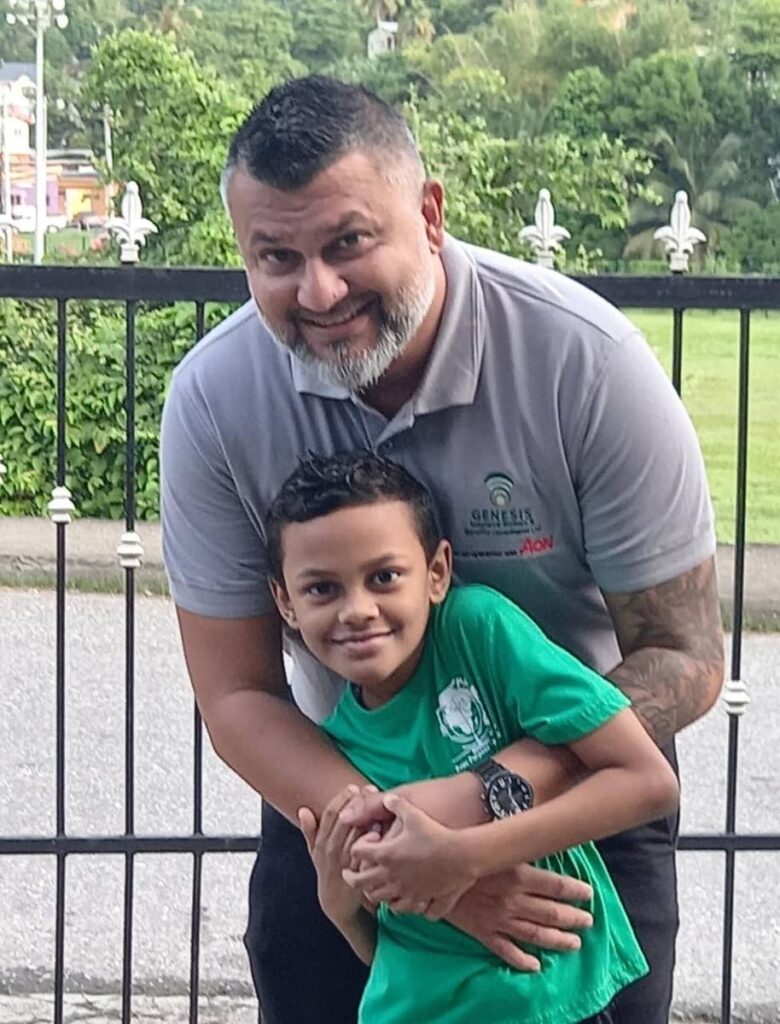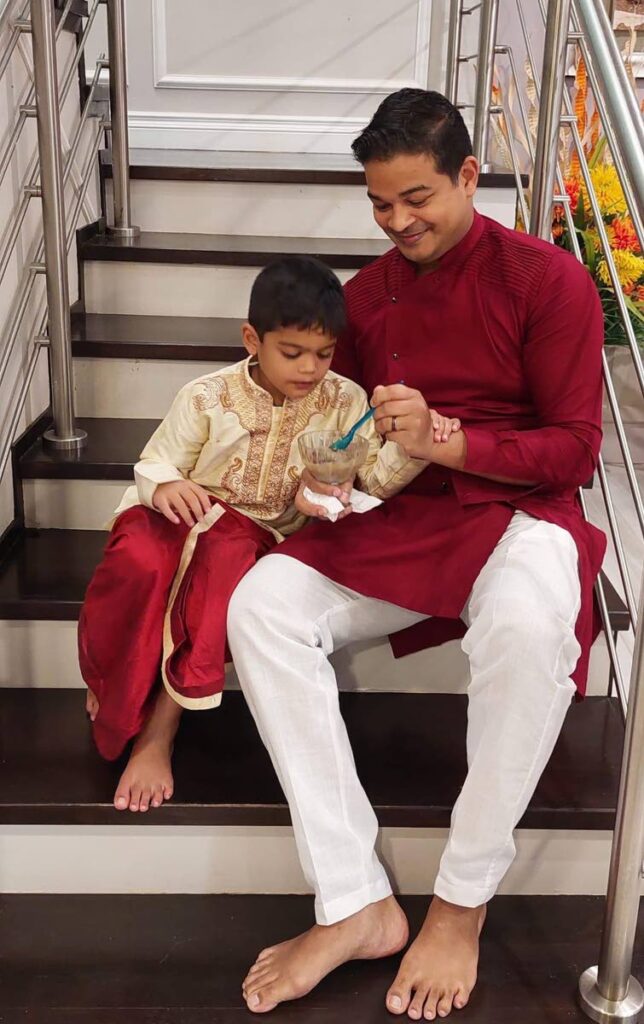Fathers play an important role

DR RADICA MAHASE
“Fathers play an important part in any child's life, whether the child is neurotypical or otherwise, and we should grasp that role and steer them on the path to achieve their full potential, despite the many obstacles they might face.”
These are the words of Imran Daniel, father to eight-year-old Zidane, a talented musician who was diagnosed with autism spectrum disorder.
On November 19, Trinidad and Tobago joins the international community in celebrating International Men’s Day (IMD). One of the six core objectives of International Men’s Day is to celebrate men’s positive contributions to society, community, family, marriage, childcare, and preservation of the environment.
IMD founder Dr Jerome Teelucksingh noted, “There is a gender gap in which gender imbalance or reverse gender discrimination is accepted as the norm. Governments and organisations tend to focus on women and implement policies to cater to the development of women. Attempts at interventions and counter-measures to include boys and men in the inequality debate appear superficial.”
In the special-needs community, there has been a general lack of focus on fathers who are raising children with autism and other special needs and disabilities in general. As a society, we focus on the deadbeat dads, the ones who don’t fulfil their parental responsibilities. We do not think of the fathers who are there with their children every step of the way. The ones who find extra work so that they can afford to pay for therapy or send their children to private schools. We don’t focus on the impact that caring for a special-needs child might have on their mental health, much less consider ways to offer support and to help them deal with their challenges.

Research by A Burell, et al, has shown that “… fathers described receiving the diagnosis as a difficult and emotional time in their lives, equating it to grief and loss of the child they had been expected and prepared for.” Some fathers feel an added responsibility as they support the mother of their child and the wider family.
According to Daniel, “When my child was diagnosed, my initial reaction was calm and collected. My only thought after hearing his diagnosis was on the way forward, and to see what avenues we can open for him. As a man, I knew what my role was in the family and the support I would offer my wife and other children at the time. At no point in time did I think it was a hindrance, but a chance to be the best dad I could be for him.”
Burrell, et al noted, “A first major step was seeking information, 'reading up about it' in order to better understand their child and ASD. Seeking information about the disorder may help fathers to maintain some sense of control over their circumstances – where the diagnosis of ASD has ripped asunder their expectations of parenthood.”
Autism dad Robin Ramkissoon, father of five-year-old Zane, noted, “I think as a man it was a bit easier for me as I didn’t get too wrapped up in the emotions of it, but rather, went on a mission to gather knowledge and resources to understand and tackle the challenge effectively.”
Fathers feel that extra need to "handle the situation" and to empower themselves.
According to researcher Monique Seymour, “Fathers of children with ASD may be at increased risk of experiencing psychological and physical health difficulties.” Seymour noted that while the majority of fathers are managing well, “fathers of children with ASD were at increased risk of experiencing psychological distress and poor overall health.”
For many fathers the added stress comes from worrying about their child’s future and dealing with society’s backward attitudes.
Daniel said, “The most difficult thing for me is the realisation of how many people in society operate in ignorance towards children with special needs, or in this case, autism. Every day I see it and I can only be hopeful we can advocate for better.”
Ramkissoon noted, “One of the biggest difficulties of being a father to an autistic child is dealing with the uncertainty of what the future holds for my son. Also, what changes or new challenges his condition will bring as he grows, and the fact that I won’t be there forever and whether he will be able to live independently.”
Ramkissoon’s advice to other fathers of autistic children: “Don’t give up or let people discourage you from being there for your children. In whatever way you can, be a friend to your child and a source of happiness so it will be easier for them to tell you things and always try to pay attention to what they are up too.”
As we celebrate International Men’s Day, this would be a good time to actively check in with special-needs fathers; to assess the availability of support groups and counselling services, and ways in which we can support fathers of children with special needs/disabilities.
Happy International Men’s Day.
Radica Mahase is the founder/director of Support Autism T&T


Comments
"Fathers play an important role"